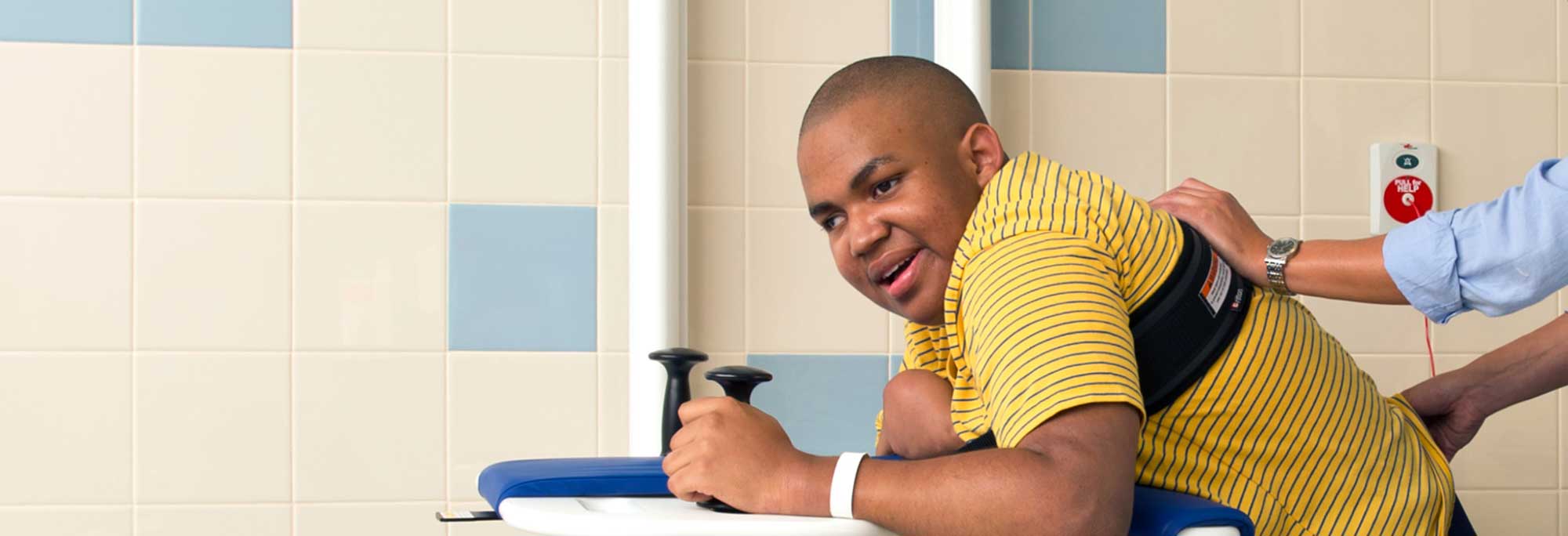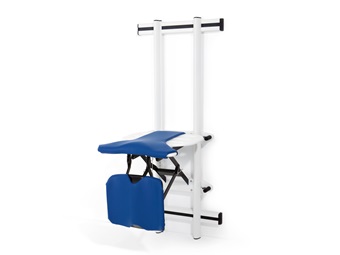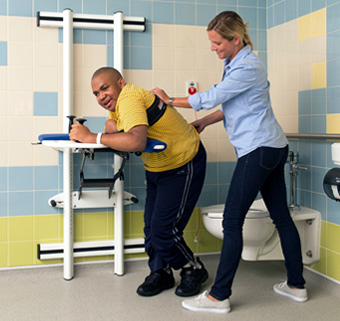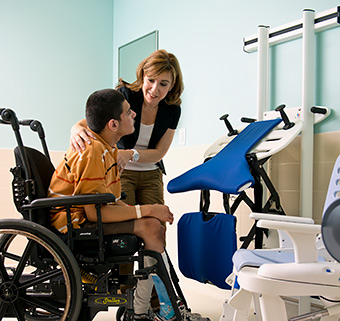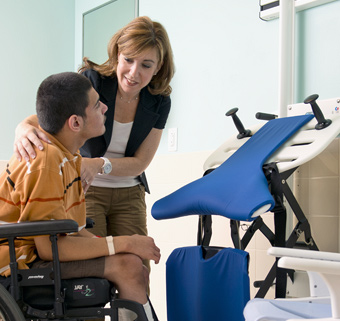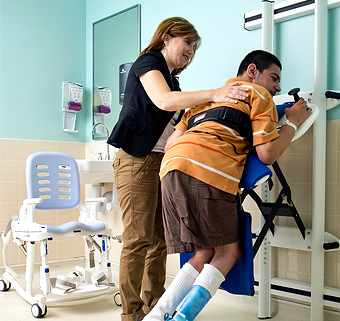Dignity. Convenience. Possibilities.
The Support Station brings new dignity, convenience and possibilities to hygiene care for people with disabilities.
The Support Station’s unique features enable even partially weight-bearing individuals to receive hygiene care or a diaper change in an upright position – making the process more dignified, improving access to clothing and skin, and eliminating heavy lifting on the part of the caregiver.
Download the Support Station brochure.
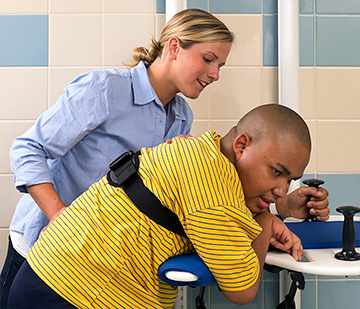
Benefits
With the Support Station clients assist in the sit-to-stand transfer using their own strength and skills to participate in their care. Over time clients using the Support Station actually improve their standing and toileting skills – paving the way for greater independence and better health.
Install the Support Station to use with a rolling commode or as a transfer aid to a stationary toilet.
In facilities around the country the Support Station is making a dramatic difference for clients with disabilities and their caregivers.
See what a difference 90° can make.
- Greater dignity and independence: Putting an end to infant-like, horizontal hygiene can have dramatic emotional benefits. Even people with very limited weight-bearing ability can now participate in their own personal care.
- Improved safety for caregivers: Eliminating transfers to a mat or changing table means less lifting and wrestling with clothing, plus clothing and skin are more accessible – so the process is healthier for everyone.
- Practice in strength and skill building: Using their own strength and skills to transfer and support themselves users improve weight-bearing and motor skills over time.
- Less time out: Faster than horizontal diapering the Support Station lets everyone spend less time on hygiene and more time in class, in therapy or simply enjoying life.
Features
An innovation in toileting, the Support Station enables toilet transfers for people with physical disabilities. In consultation with therapists, Rifton designed the Support Station to allow clients to assist in their own personal hygiene – providing them greater dignity and independence. At the same time, it provides benefits to staff by reducing staff injury due to heavy lifting and difficult transfers.
- 1 Adjustable height and tilt
- 2 Easy to clean
- 3 Folds for storage
- 4 Non-weight-bearing transfers
- 5 Pivot or fixed configurations
- 6 Self-assisted transfers
- 7 Upright positioning
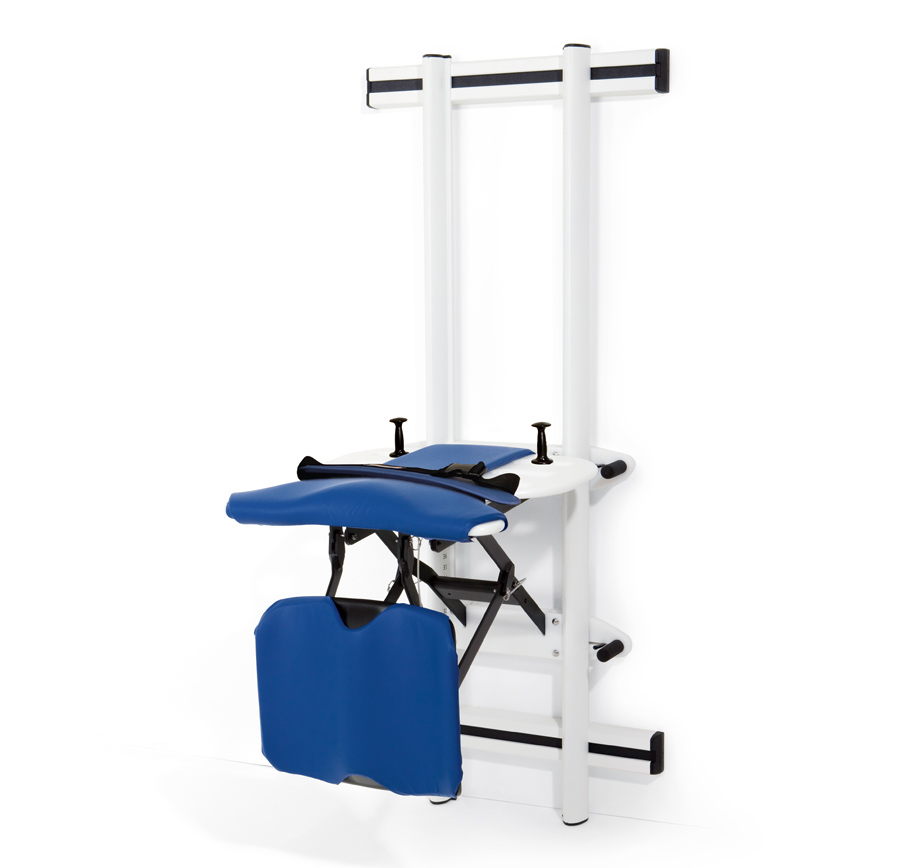
Components
Use the slides below to learn more about the components of the Support Station.
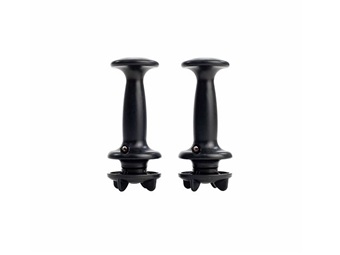
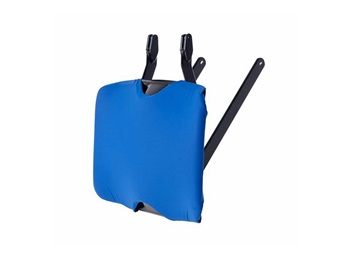
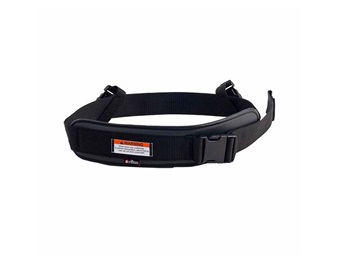
Sizes & Dimensions
Use this dimensions chart to help you make the right choice for your client.
Important: User’s weight must not exceed the maximum working load.

Check the user’s overall height to see if the Support Station will fit your client.
| Item Dimensions (inches) | K710 Support Station |
|---|---|
| User’s overall height |
46 – 80 (117 – 203 cm) |
| Trunk board size |
24 x 24 |
| Maximum trunk board height |
45 |
| Minimum trunk board height |
26 |
| Frame height |
65½ |
| Frame width |
27½ |
| Depth when trunk board horizontal |
31 |
| Depth when collapsed against wall |
8 |
| Maximum working load (lb) |
250 |
Adding a kneeboard determines the choice between fixed or pivot configuration. This decision should be made after determining your location for installation.
Fixed Configuration:
 |
More information about Support Stations is located in the Product Manual.
Product Resources
Learn more about the Support Station using the resources below.
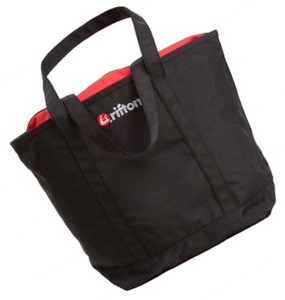
Downloads
